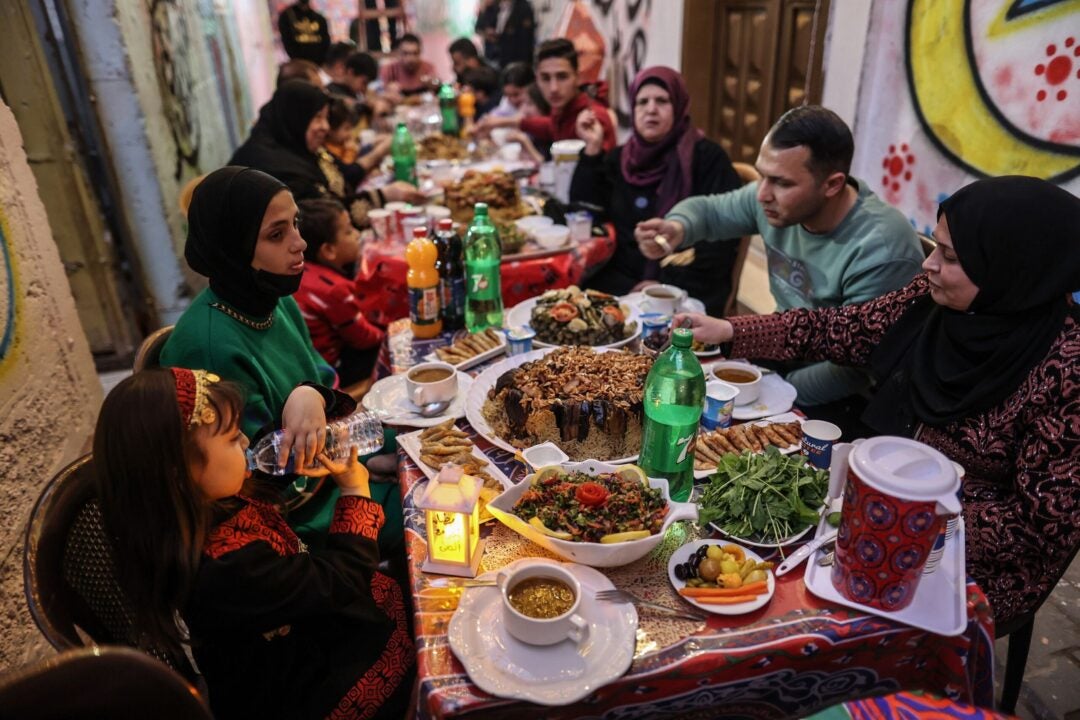Nutritionist-approved tips for healthy, energized Ramadan fasting
(CNN) — Ramadan is the ninth month of the Islamic calendar, during which observant Muslims observe a strict fast from dawn until sunset. Maintaining a balanced diet during this holy month is necessary in order to keep the body energized for prayer and other practices throughout the day.
Dietician Rahaf Al Bochi, recipe developer for the CNN newsletter Eat, But Better: Mediterranean Style, shares her thoughts on how to eat healthily and stay hydrated while fasting.
This conversation was edited and condensed for clarity.
CNN: First, when can you eat during Ramadan?
Rahaf Al Bochi: The first meal you eat is suhoor, the predawn meal. It is like breakfast, but you get to have it earlier. You want to make sure that you’re not skipping that. At sunset, you have iftar, which is the breaking of your fast.
CNN: What’s the best way to break your fast?
Al Bochi: In our prophetic tradition, the recommendation is to break the fast with dates and water. Dates are a great source of quick energizing sugar, which is what you want when you’re fasting during the day. They also have some fiber, and when you pair them with a protein source like some nuts, it can prevent a sharp spike in blood sugar. Some options are nut butter, almonds or walnuts. Depending on their size, you also don’t want to eat 10 dates, just one or two.
When breaking fast, you’ll want to pace yourself and not jump into eating your main meal. Take a few minutes to do your prayer and then come back to eat. Listen to your hunger and fullness cues and check in with yourself that you’re eating slowly, chewing the food and enjoying it.
CNN: What should a meal include?
Al Bochi: When you’re building your meal, make sure you have complex carbohydrates, fiber-rich carbohydrates, protein and healthy fat. A great visual to use is the healthy plate model. It can help you balance your macronutrients, meet your energy needs and portion-size food groups.
Envision your plate and divide it in half. One-half of your plate should be for non-starchy vegetables or a salad. Then a quarter of your plate should be for complex carbohydrates that are fiber-rich, such as quinoa or potatoes. Fruits can also go on there. The last quarter of your plate is for protein so that’s your chicken, beef and other meats.
CNN: Can you give me some examples of a typical meal for suhoor and iftar?
Al Bochi: When it comes to the predawn meal, you’re getting enough protein to sustain you. The reason we focus on protein and healthy fats is that they are slower to digest in your body. These are the foods that will give you energy throughout the day. Examples are eggs, avocados and toast, overnight oats, Greek yogurt bowls, protein waffles and burritos stuffed with beans and eggs.
People like to eat rice, chicken, salad and soup for dinner. For the iftar meal, make sure you are incorporating those types of foods with the healthy plate model.
CNN: Are there foods you recommend people avoid during Ramadan?
Al Bochi: Honestly, I don’t like to tell people you shouldn’t totally avoid foods, but there are some you can be mindful of, like sweetened beverages and fried foods. A lot of cultural foods tend to be fried, so enjoy them in moderation. Make sure your other foods are balanced and more nutritionally dense.
CNN: Do you have any tips for staying hydrated when fasting?
Rahaf Al Bochi: It’s really important to make sure you’re adequately hydrating during the non-fasting hours. That can mean taking a water bottle with you if you go outside for nightly prayers. Teas, soups, and fruits with high water content like watermelon all count toward your fluid intake.
Another great tip is to add electrolytes to water. Electrolytes help your body absorb the water you are drinking and add extra potassium, sodium and vitamin C. Mix a no-added-sugar electrolyte powder into your water or make your own with coconut water, a pinch of salt and a splash of orange juice.
CNN: Coffee can be very dehydrating. Should people cut back on their caffeine intake during Ramadan?
Rahaf Al Bochi: Honestly, it’s a personal decision. If you’re a coffee drinker and then abruptly stop during Ramadan, you might experience some headaches. I recommend my clients taper down their caffeine intake, though it depends on how much they are currently drinking. Some people love their caffeine and will drink their coffee at the predawn meal, suhoor.
To have an energized Ramadan, optimize your nutrition. Balance your meals using the healthy plate model, drink enough water and add electrolytes as needed. Finally, remember to enjoy your cultural foods. We want to still enjoy the foods we’re eating.
Editor’s note: Jocelyn Solis-Moreira is a freelance health and science journalist based in New York.


